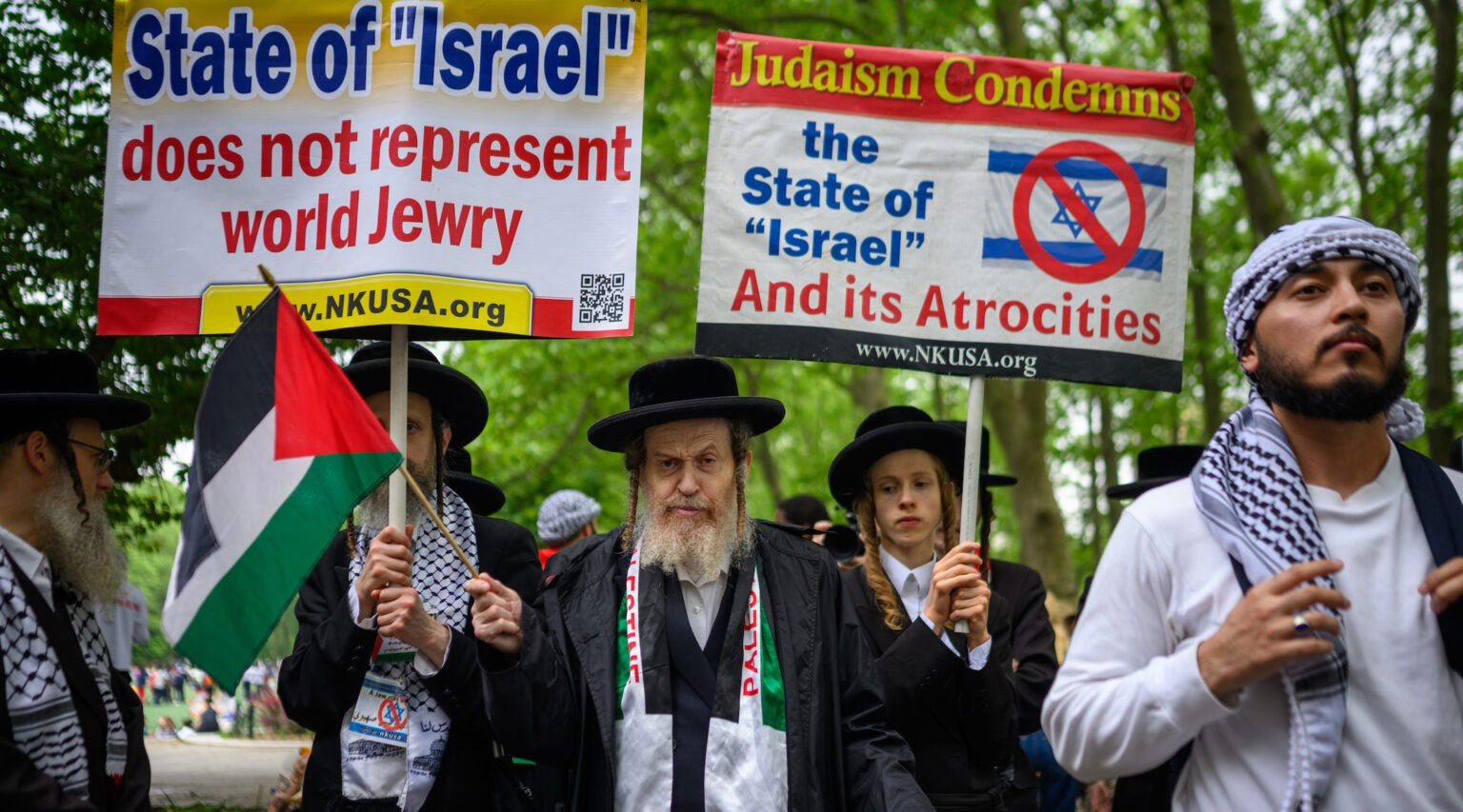June 6, 1956 — Merger Forms Tel Aviv University

A pedestrian bridge at Tel Aviv University features the university’s logo. By Dr. Avishai Teicher, PikiWiki Israel, CC BY-SA 4.0, via Wikimedia Commons.
The Tel Aviv School of Law and Economics merges with the Municipal Institute of Natural Sciences and Humanities to form Tel Aviv University, which soon adds the Academic Institute of Jewish Studies. The university gains independence from the municipality in 1963, the year it launches medical courses and hires its first president, George Wise. From fewer than 200 students, Tel Aviv University has grown into Israel’s largest institution of higher learning.
June 7, 1981 — Israel Destroys Iraqi Reactor

The nose of the F-16 flown by Ilan Ramon during Operation Opera displays the mission’s triangular marking, which includes a nuclear reactor. By Oren Rozen, CC BY-SA 3.0, via Wikimedia Commons.
Eight Israeli F-16s fly a 2,000-mile round trip to bomb Iraq’s Osirak plutonium nuclear reactor 10 miles from Baghdad. Operation Opera destroys the nearly completed, French-built reactor, which Israel fears is meant to develop weapons. Ten Iraqi soldiers and a French civilian are killed. The mission establishes the Begin Doctrine: Israel will do what is necessary to prevent a hostile Middle Eastern regime from obtaining nuclear arms.
June 8, 1898 — Zionist Orthodox Union Is Founded

The Orthodox Union was the idea of Rabbi Henry Pereira Mendes, whose Congregation Shearith Israel in New York hosted the meeting where the OU formed. Orthodox Union.
The Orthodox Union forms during a meeting in New York to serve as an organization for traditional Jewish congregations facing the challenge of the Reform movement in the United States. A resolution rejects the idea that Jews “are merely a religious sect” and says the Jewish nation’s “restoration to Zion is the legitimate aspiration of scattered Israel, in no way conflicting with our loyalty to the land in which we dwell.”
June 9, 1967 — Troops Move Into Syrian Golan

Israeli tanks advance on the Golan Heights near the end of the June 1967 war. By Assaf Kutin, Israeli Government Press Office, CC BY-SA 3.0.
Israeli forces led by Maj. Gen. David Elazar launch an offensive into the Syrian-controlled Golan Heights on the fifth day of the Six-Day War. Defense Minister Moshe Dayan, who had opposed moving into Syria, orders the attack after Syria announces its intentions to accept a cease-fire. The offensive produces heavy Israeli casualties but gives Israel control of the Golan before accepting a cease-fire the next day.
June 10, 1930 — Arab Leaders Admit Failure of Not Cooperating

Jewish Agency official Frederick Kisch is shown shortly before his death as a British army officer in North Africa in 1943. Courtesy of Bet Hatfutsot.
Frederick Kisch, the head of the Jewish Agency’s political department, writes in his diary that all Arab leaders in Palestine except the mufti of Jerusalem acknowledge that refusing to participate in British discussions about the future of Mandatory Palestine has been a failure. The Arab boycott of British talks, meant to demonstrate a rejection of a Jewish national home in Palestine, has allowed Jewish leaders to gain political leverage.
June 11, 1947 — Hadassah Co-Founder Emma Gottheil Dies

Emma Gottheil received the French Cross of the Legion of Honor in 1940 for her work on Franco-American relations. Courtesy of the Library of the Jewish Theological Seminary.
Emma Gottheil, one of the first female Zionist leaders, dies at her New York home at age 85. A native of Beirut, she is educated in Paris and moves to New York in 1891 after marrying Richard Gottheil, a Columbia University professor and son of the rabbi of the city’s Temple Emanu-El. The Gottheils are delegates to the Second Zionist Congress, and she helps found a group that becomes Hadassah, named in memory of Emma’s mother.
June 12, 1948 — Jews in Tripoli Face Riots

Immigrants from Tripoli, Libya, finger-paint at a school in Be’er Sheva in 1956. By Fritz Cohen, Israeli Government Press Office, CC BY-SA 3.0.
A mob attacks the Jewish Quarter in Tripoli, Libya, while North African Arabs are passing through the city on their way to join the armies fighting against Israel’s independence. In the resulting two days of riots, 14 Jews are killed, and 300 lose their homes. Rioters are heard shouting, “If we cannot go to Palestine to fight Jews, let’s fight them here.” Defense groups formed after riots in November 1945 help prevent higher casualties.
Items are provided by the Center for Israel Education (israeled.org), where you can find more details.





